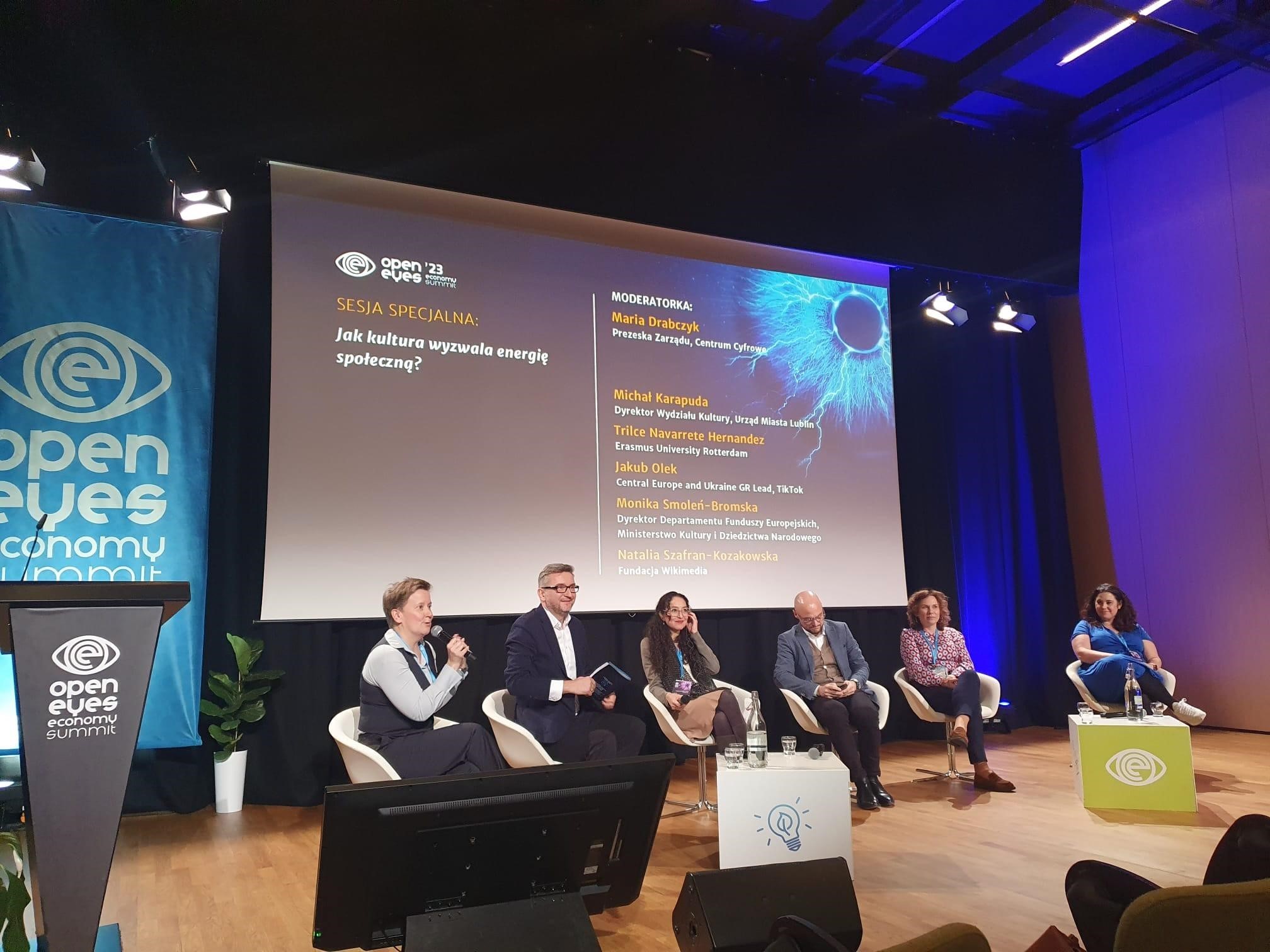How Does Culture Generate Social Energy?
Active participation in culture is a value that builds social and human capital, creates a sense of belonging, fosters feelings of security, and supports creativity and innovation. However, the adoption of a participatory model of operation by cultural institutions requires a change in the way they think about their relationship with their audiences. It involves acquiring a new set of competencies that cultural institutions must obtain to operate effectively in the digital environment.
We present a summary of the special session that we have jointly organized with the University of Economics in Krakow during the Open Eyes Economy Summit.
Research shows the social value of the culture dimension. An analysis of institutional actions during the Covid-19 pandemic has also highlighted the potential of cultural institutions. During the crisis they implemented new ways of reaching communities and engaging them in their activities demonstrated a capacity for innovation and a commitment to fulfilling their public mission.
By opening up to greater involvement beyond the mere opportunity for cultural participation and by giving interested parties the chance to co-create their programs and organizational strategies, cultural institutions have begun to establish a new type of relationship with their communities ‚Äď a relationship based on active participation. The community’s involvement in processes, co-creation, trust, openness, and inclusivity are increasingly becoming key concepts supporting the development of a credible and socially relevant cultural institution.
Participation has also become a required factor at the level of policies and public funding. For the first time in history, it was mentioned in the new definition of the International Council of Museums (ICOM) from 2022 as an integral component of museum activities:
‚ÄúA museum is a not-for-profit, permanent institution in the service of society that researches, collects, conserves, interprets and exhibits tangible and intangible heritage. Open to the public, accessible and inclusive, museums foster diversity and sustainability. They operate and communicate ethically, professionally and with the participation of communities, offering varied experiences for education, enjoyment, reflection and knowledge sharing.‚ÄĚ*
Increasingly, it is also included as a required component in activities funded by European funds for culture.

Can Polish cultural institutions harness and implement values promoting social engagement in their long-term operational models? How can these values be translated into actions in the digital environment? We discussed this within a group of experts:
- MichaŇā Karapuda ‚Äď Director of the Culture Department, Lublin City Hall
- Trilce Navarrete Hernandez ‚Äď Erasmus University Rotterdam
- Jakub Olek ‚Äď Central Europe and Ukraine GR Lead, TikTok
- Monika SmoleŇĄ-Bromska ‚Äď Director of the Department of European Funds, Ministry of Culture and National Heritage
- Natalia Szafran-Kozakowska ‚Äď Wikimedia Foundation
- Moderator: Maria Drabczyk ‚Äď Chair of the Board, Centrum Cyfrowe Foundation
Several thoughts emerged from the discussion:
- Social energy ‚Äď in every dimension: local, national, digital ‚Äď must be built upon a value system: responsibility, trust, dialogue.
- Cultural institutions’ actions in the digital realm require an understanding of the behaviours of digital content consumers and co-creators, which differ from those in physical spaces. However, digitalization creates an opportunity for institutions to collaborate with communities based on principles of sharing ‚Äď commons ‚Äďand engaging these communities. Once again, authenticity and the ability to engage in dialogue are crucial.
- Cultural institutions need to learn participatory principles and engage in dialogue with communities. One source of inspiration for such action could be the RECHARGE Living Labs model ‚Äď laboratory for testing and developing innovative ways to implement participatory models in heritage institutions, focusing on creating and integrating values.
Centrum Cyfrowe Foundation was a partner of OEES in 2023, and together with the UNESCO Chair for Heritage and Urban Studies at Cracow University of Economics, they were the authors of a special session titled “How Does Culture Generate Social Energy?‚ÄĚ.
 
*source: https://icom-poland.mini.icom.museum/nowa-definicja-muzeum